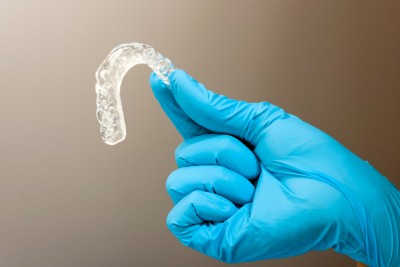Bruxism and Temporomandibular Joint Syndrome Explained
 Bruxism Explained
Bruxism Explained
Bruxism, or the problem of grinding and clenching teeth and jaws, is not as uncommon as people think. More often than not, bruxism is the reason behind chronic jaw pain and headaches. It also causes face and neck pain. Bruxism not only causes these pains but also permanently damages the structure of one’s teeth. It also causes tooth decay, and therefore, increased sensitivity.
Many factors directly increase one’s chances of developing bruxism. For instance, bruxism is quite commonly seen in young children and individuals who are aggressive or highly competitive by nature. Similarly, it is also seen in people who indulge in tobacco use or drink too much coffee or alcohol, as well as people who are sensitive by nature and experience quite strong emotions. The problem of clenching and grinding one’s teeth is also quite commonly seen in individuals suffering from conditions like epilepsy, ADHD, sleep apnea, Parkinson’s disease, etc.
Can I Do Something to Stop Day-Time Clenching and Grinding of Teeth?
While it is not clear what causes bruxism exactly, it is believed that a combination of genetic, physical, and psychological factors play a critical role in making a person susceptible to this problem. If you experience day-time bruxism, here are a few things you can do to stop clenching and grinding of teeth:
- Do not drink too much tea or coffee. Stay away from alcohol as much as you can.
- Do not smoke right before going to bed.
- Put on calming music while sleeping.
- Meditate when angry or stressed out or right before going to bed.
- Use a night guard. These days, one can get custom night guards, also known as an occlusal guard or occlusal splint or a bite splint. These night guards do not stop clenching of teeth and grinding. However, they do protect your teeth from damage.
Temporomandibular Joint Syndrome Explained
Temporomandibular Joint Syndrome or TMJ is a problem that affects the jaw muscles as well the Temporomandibular Joint that connects the jaw with the skull. People suffering from this syndrome experience symptoms, such as difficulty in chewing and eating, difficulty in opening or closing the mouth, face swelling, etc. People suffering from bruxism often suffer from this syndrome.
More often than not, in the case of this syndrome, dentists advise patients to wear a nightguard. The nightguard keeps the jaw and teeth in the right position, which reduces jaw tension, head, jaw, and muscle pain, and symptoms associated with TMJ.
Ignoring the problem of bruxism or TMJ can lead to several issues, and therefore, one must not ignore these problems. Not many people know but bruxism is one of the leading causes of root canal treatment around the world. Bruxism and TMJ cause enamel erosion, which ultimately makes one susceptible to cavities.
Therefore, people suffering from bruxism and TMJ must wear a mouthguard necessarily. While one can buy mouthguards online, one should go for a custom-made nightguard for the following reasons:
- Custom-made nightguards are made using better materials than over-the-counter nightguards.
- Custom-made nightguards fit the mouth property and therefore, help with jaw alignment and therefore, jaw pain.
- Since they are custom-made, these nightguards are also quite comfortable to wear.
- Custom-made nightguards last longer than over-the-counter nightguards.
Getting a custom-made nightguard is quite simple. Simply visit your dentist and they will tell you the rest.
For more information regarding your dental health, please give Dr. Apsey of Smile Brightly Dental a call today! We are located in Warren, MI and we can be reached at 586-573-7700!
